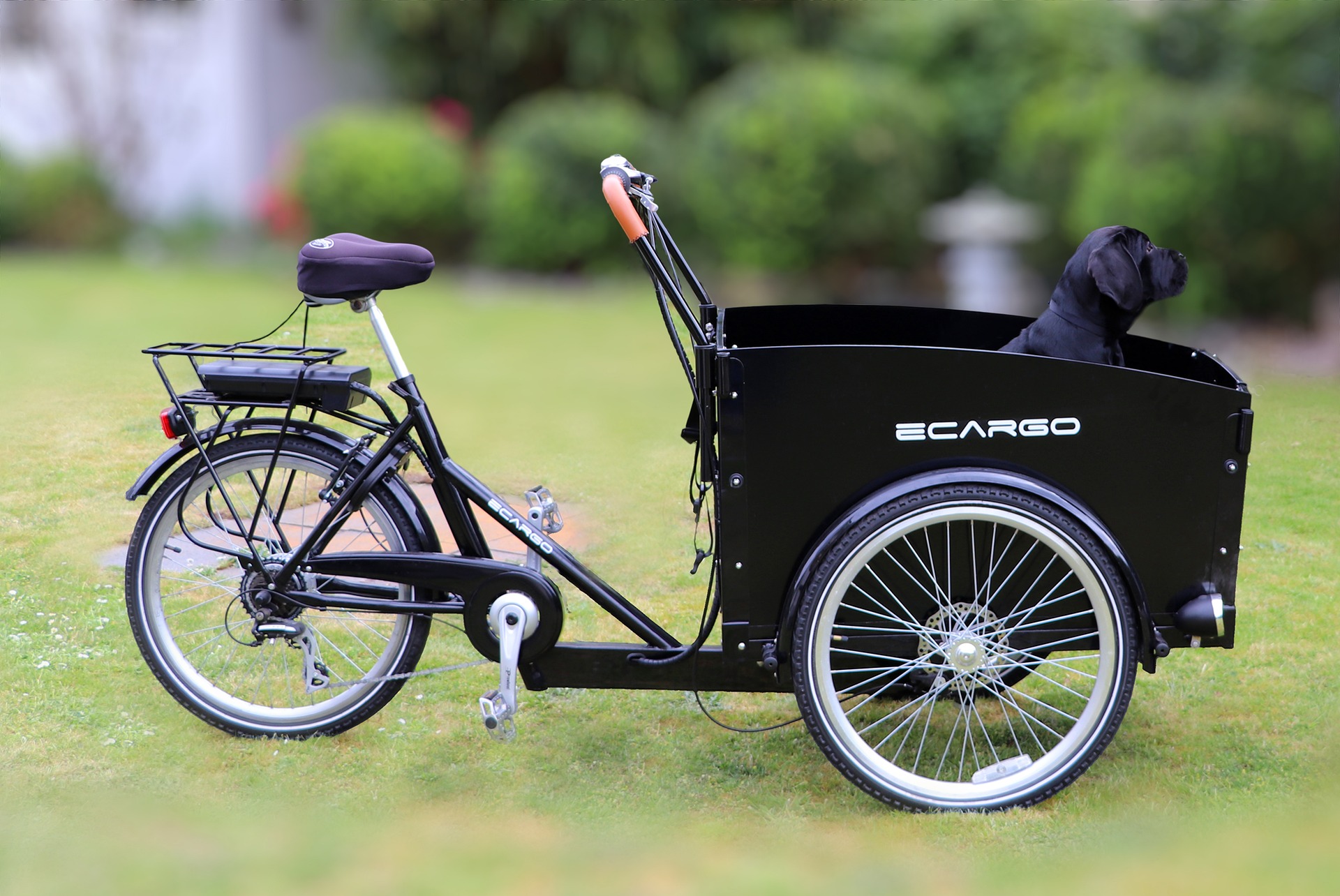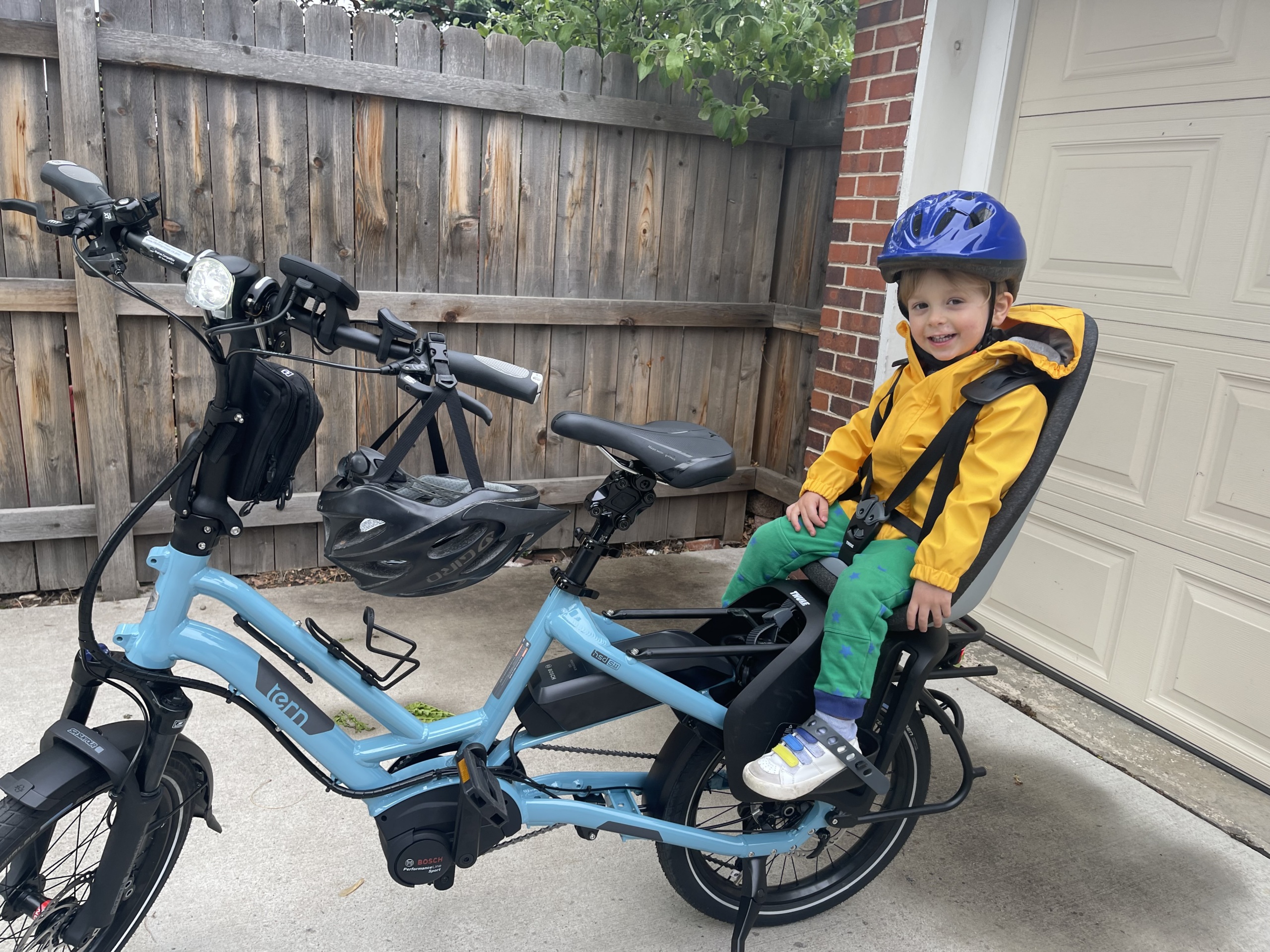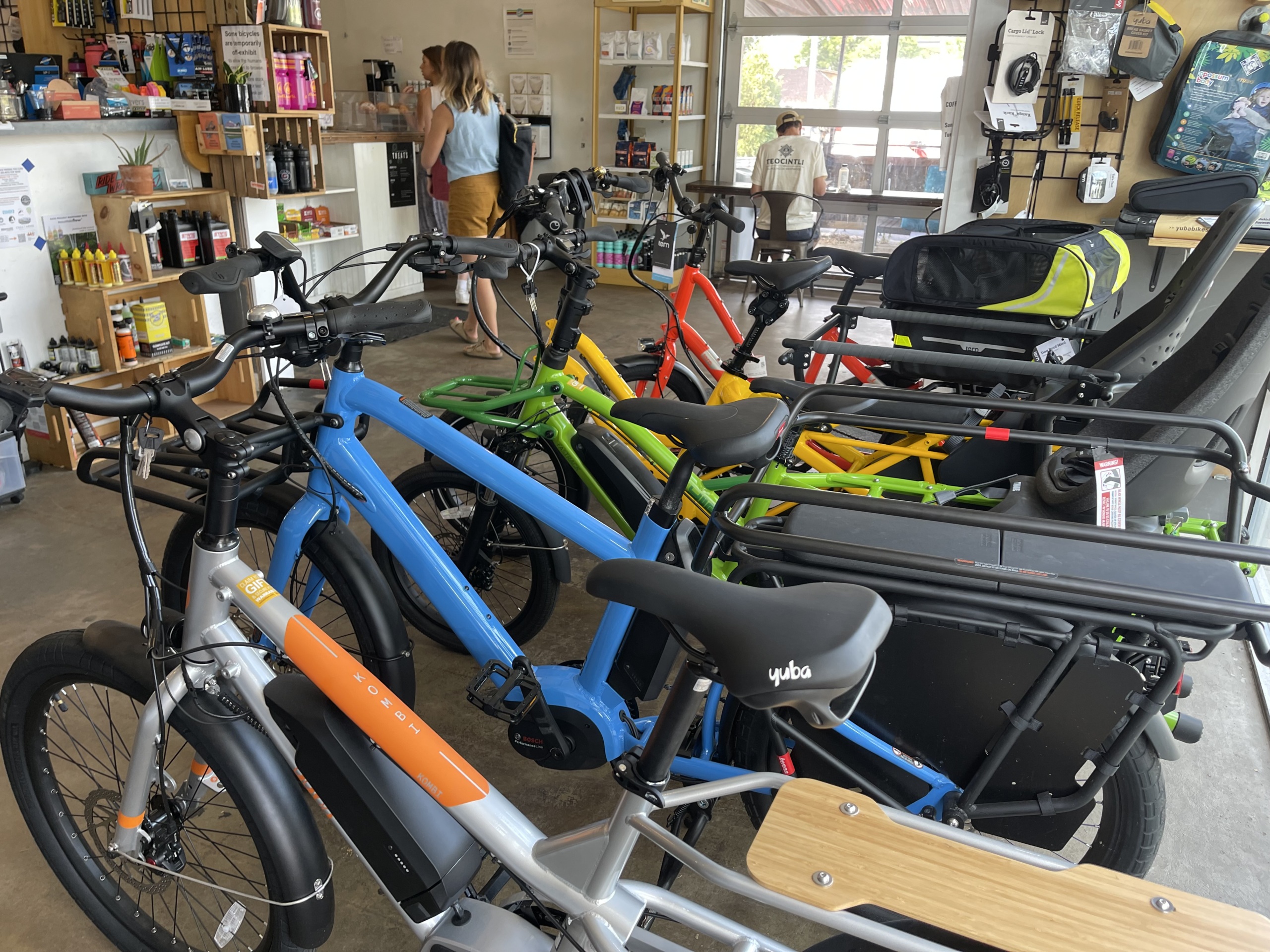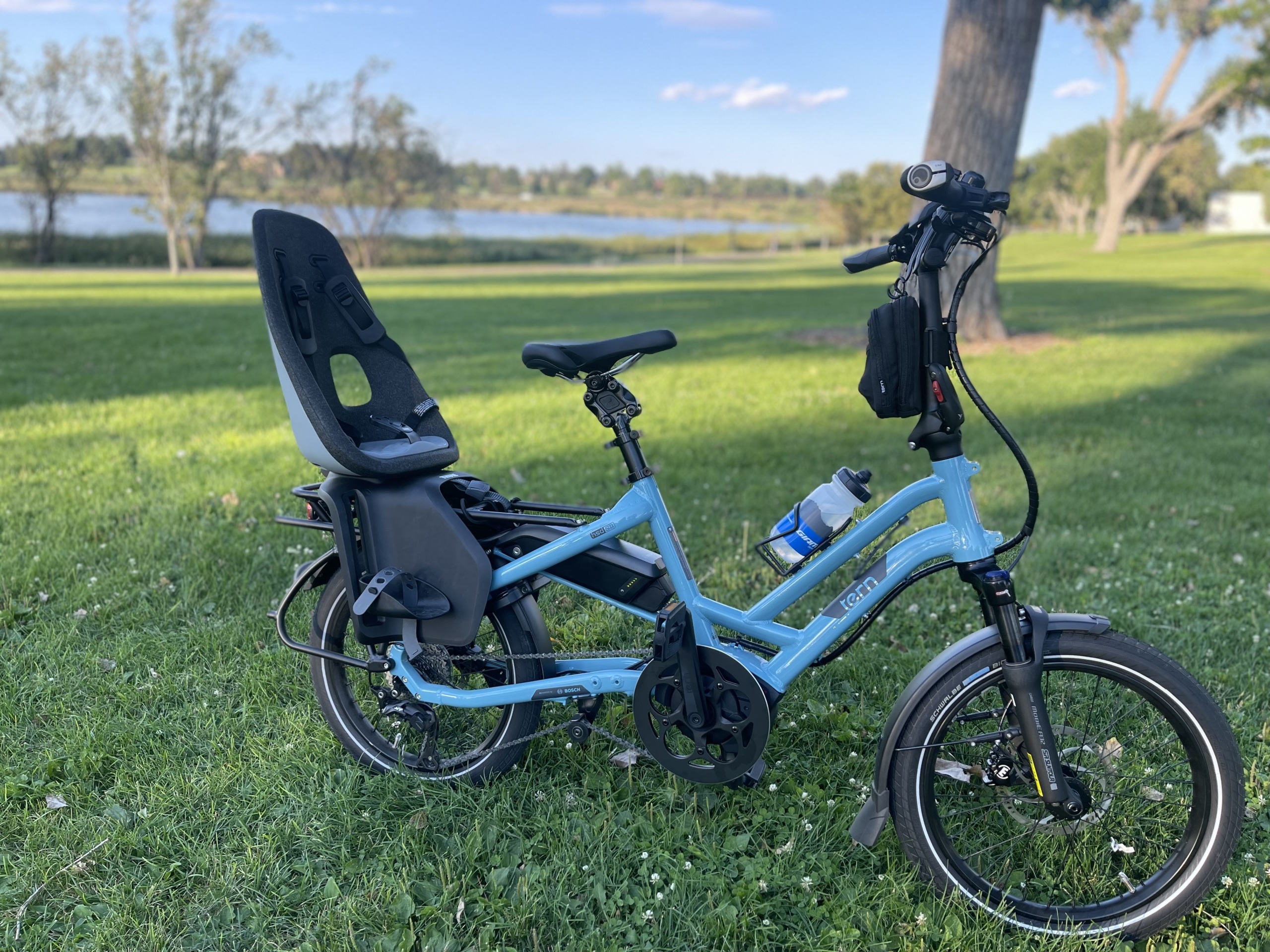
2023 State of E-Bikes in Colorado
E-bikes are a practical, fun, and healthy option that can improve our state’s air quality by offering a zero-emission alternative to car trips. They are also an increasingly common sight across the state, as Colorado emerges as a leading state for increasing access to e-bike ownership and usage. Our new report finds Colorado has set the bar nationally in funding, education, and research and data collection contributing to growing e-bike ownership.

With battery powered motors that assist riders as they pedal, electric bikes enable longer trips than traditional bicycles and can appeal to a broader range of users. From work commutes and school drop offs to pleasure rides or business deliveries, e-bikes are showing up as an alternative to car trips, creating a healthy alternative for residents while improving air quality in our state. CoPIRG’s new report looks Colorado’s history of e-bike programs and funding and latest developments in safety, research, and data.

Colorado Leads the Country in E-Bike Funding
Colorado is a leader nationally for public e-bike funding. As of July 2023, Axios found Colorado had the most e-bike financial incentive programs of any state at 29. If you add up all the state programs, Colorado is providing an estimated $102 million directly towards e-bike ownership and access since 2020.
The state Colorado has funded the following programs for e-bikes:
- 2020: Can Do Fall 2020 eBike Mini-Pilot – $500,000
- 2022: SB22-093 – $12M
- 2023: SB23-1272 – $90M (*funding is estimate, exact amount will depend on volume of rebates)
- Estimated total = $102,500,000
One of the earliest state programs was Colorado’s Can Do Colorado eBike Fall 2020 Mini-Pilot Program. Started in 2020 with $500,000, it was designed to collect data by deploying 13 e-bikes (including a helmet, bike lock, and lights) to low-income workers at no cost.
Hear about the Can Do Mini-Pilot from one of the participants on our 2022 webinar Rise of the E-bike.
Watch our 2022 webinar - Rise of the E-Bike in Colorado
CoPIRG adovate Alex Simon teams up with Bicycle Colorado to host an exciting panel discussion on the rise of e-bikes as a tool for both transportation, improving air quality and battling climate change.
In 2021, Colorado expanded access to e-bikes for low-income workers by providing grants to organizations to start a variety of e-bike access programs, including individual ownership and shared deployment. The program was funded through a partnership from the Colorado Energy Office (CEO), the City and County of Denver, and the Regional Air Quality Council (RAQC) and made awards to 7 community organizations across the state.
The result – over 150 people received e-bikes and 50 people received e-bike share memberships.
In 2022, the state built on this e-bike momentum by passing SB22-093, which sent $12M to local governments, tribal governments, or nonprofits for e-bike ownership or bike share programs to increase community access to e-bikes. The bill funded two key e-bike access programs. The first, the Community Access to Electric Bicycles Rebate Program, was launched by the CEO in August 2023. Income-qualified residents over the age of 18 whose household income is less than 80% of the area median income (AMI) can receive rebates up to $1,100 for a regular electric bike and $1,500 for an e-cargo bike. Income -qualified residents whose household income is between 80% – 100% of the area median income (AMI) can receive $500 or $900 respectively. Rebates can also be used for locks and helmets.
The second program, the Community Access to Electric Bicycles Grant Program, provides grants to nonprofit organizations, local governments, tribal governments, and other community-based organizations to create e-bike programs that aim to increase access to e-bikes for income-qualified individuals while maximizing the air quality benefits and greenhouse gas (GHG) emission reductions.
Through the most recent round (FY23), CEO funded 8 organizations from the Front Range to Grand Junction and Routt County. The FY24 round of grants is expected to open for applications in September or October 2023.

In 2023, the state continued to build on its commitment to e-bikes through HB23-1272, which created a fund of $90 million that will provide a $450 tax rebate via qualifying retailers on e-bike purchases by Colorado residents. The program will allow residents to access the discount at the point of sale, and is scheduled to begin in April 2024 and continue through June 2032.
In addition to the state, some Colorado municipalities are also investing big in e-bikes, playing an important complementary role to the state. For example, Denver’s Office of Climate Action, Sustainability and Resiliency (CASR) started a wildly popular e-bike rebate program which funded 4,734 rebates in 2022. The program has expanded to offer limited monthly rebates, which can get filled up within minutes.
Other states that have made notable public investments to expand e-bike access include Maine, Minnesota, Vermont, and Washington – read more about programs in those states here.
Portland State University is tracking e-bike incentive programs across North America, which can be viewed on their E-bike Incentive Programs in North America: New Online Tracker.
E-Bike Education and Safety in Colorado
Colorado’s own Bicycle Colorado is leading the effort nationally to educate the public around safe and responsible ebike usage. The Boulder-based nonprofit has partnered with the national organizations People for Bikes and League of American Bicyclists to launch E-Bike Smart, a free, online e-bike education series. Starting in August 2023, the course is designed to help riders of all ages and experience levels learn best practices for safely and responsibly riding an e-bike.
Bicycle Colorado is also offering in-person e-bike education starting in the fall of 2023, more details will soon be available on their website.
Check out People for Bike's E-Bike overview here:
Colorado Drives E-Bike Research and Data
Colorado is helping drive the country’s research and data collection on e-bikes, as well as the potential health and environmental impacts they can have on our air quality.
Denver’s Office of Climate Action, Sustainability and Resiliency (CASR) started a wildly popular e-bike rebate program which funded 4,734 rebates in 2022; applications for each round of rebates continue to fill up within minutes.
Denver’s Office of Climate Action, Sustainability and Resiliency (CASR) worked with Ride Report, People for Bikes, Bicycle Colorado and the Rocky Mountain Institute (RMI) to create a 2022 report highlighting program data, key takeaways, and recommendations for future action.
Some insights from the report:
- Those who completed a survey rode their e-bikes an average of 26 miles per week, replacing 3.4 round trip car trips.
- The reported e-bike trips could produce $1M in cumulative savings from avoided fuel and electricity costs.
- The program saved 0.94 lb CO2e per dollar spent, for a total of 2,040 MT CO2e avoided emissions per year.
- 29% of Denver e-bike redeemers who completed the program survey indicated they were new to riding.
- 71% of the same survey respondents reported using their gas vehicles less often after purchasing their e-bike.
- 67% of the program funding went to income qualified residents.
- 65% of Ride App users were riding at least once daily, and 90% were riding weekly.
- The average trip length of Ride App users was 3.3 miles, with 84% of trips less than 5 miles, and 65% of trips less than 3 miles.
Additionally, as part of a three-year project funded by the U.S. Department of Energy Smart Mobility program, the National Renewable Energy Laboratory (NREL) has been conducting research on micromobility, including studying CEO’s Can Do Colorado Pilot eBike program. The team found that, compared to shared micromobility, e-bike users tend to be older than manual bike users, while 34% of e-bike trips replaced car trips – the report highlighting program outcomes can be found here.

Topics
Authors
Alexandra Simon
Public Health Advocate, CoPIRG Foundation
Alex is an advocate on Colorado-based campaigns to promote a healthier, cleaner and safer world. She previously served as the Director of Strategic Planning for The Public Interest Network. Alex lives in Denver, where she enjoys hiking, skiing and seeing live music.
Find Out More

How to get the Colorado state e-bike tax credit

Electric vehicle tax credits, discounts, and rebates in Colorado

Ten key electric vehicle policies on the road to 100,000
